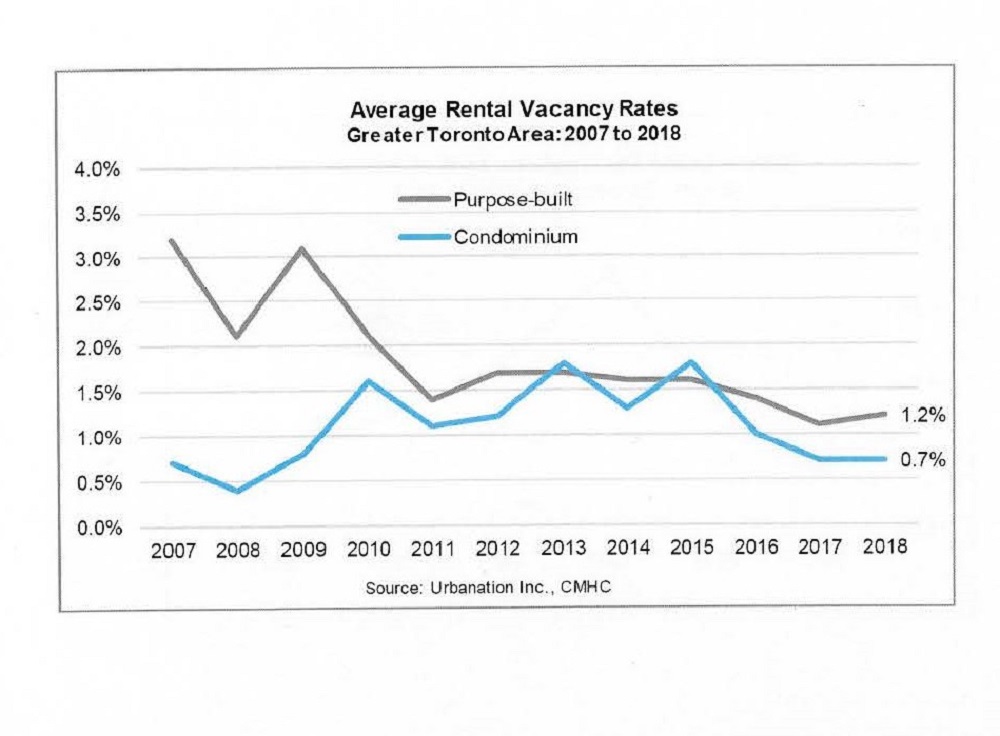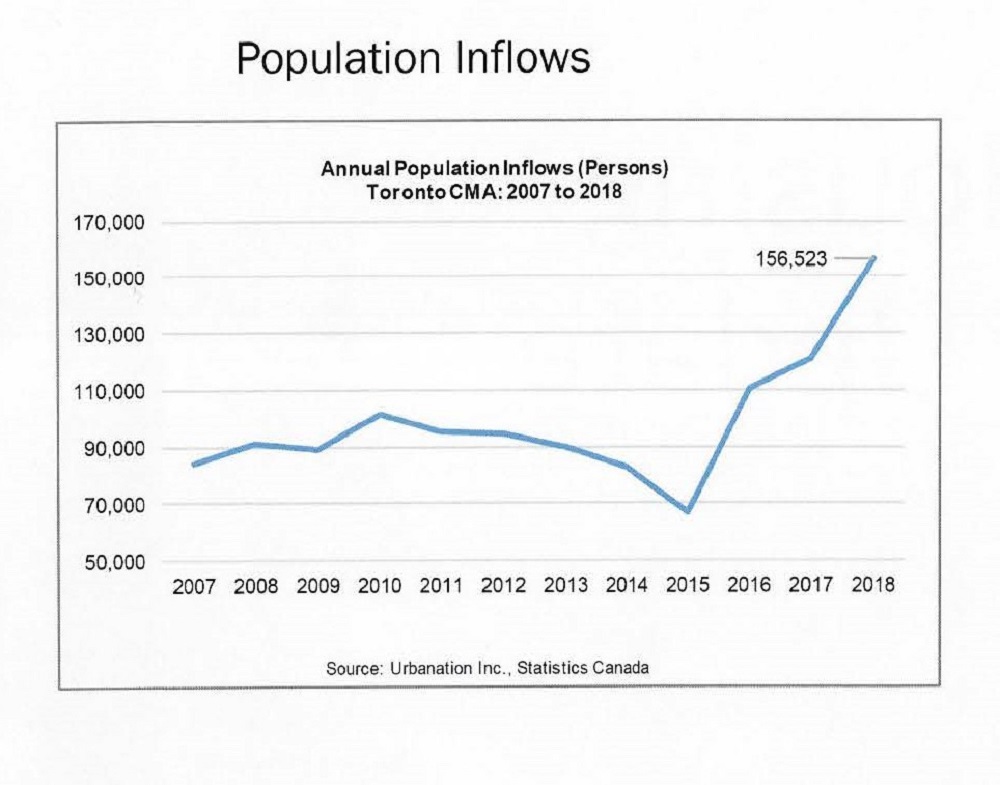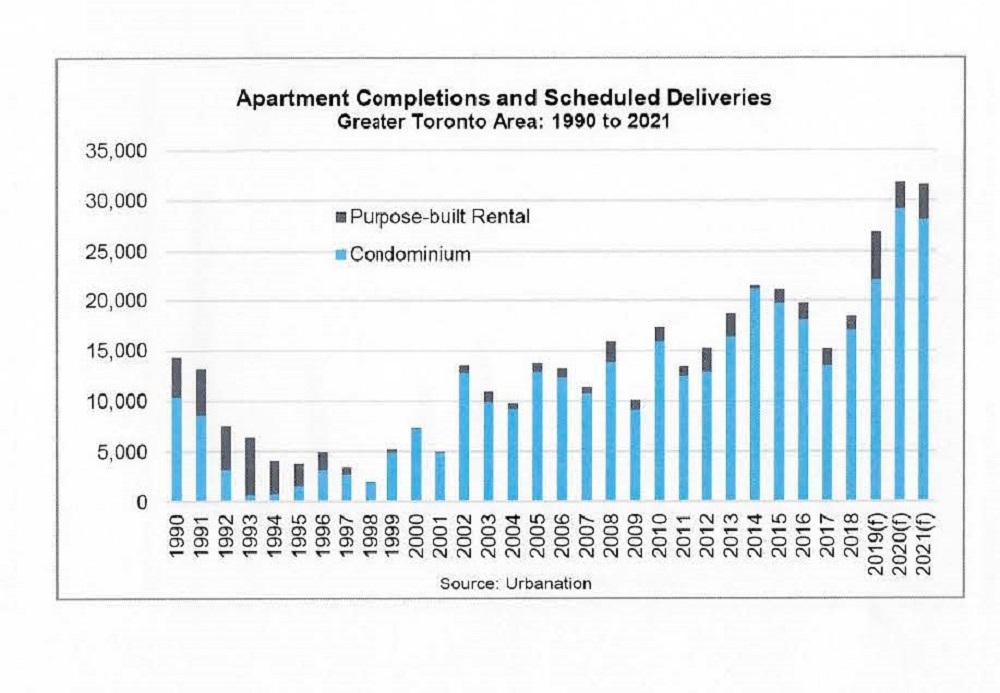
May 17, 2019 | renting
Before we begin, let’s get something out of the way… I’m a real estate salesperson, and I believe that renting is not a good use of your money most of the time. There are some times when you should rent. For example, you cannot afford to buy any property; you are not sure you will be staying in Toronto for very long; or you are in your retirement, and you’re unloading the responsibility of home ownership for the ease of renting. There are those money managers who believe renting is better than owning. You should invest that money for better returns according to their calculations. That may be the case for some people, but it sure has not been for most people most of the time for the past two decades.
Regardless of my bias, I do want to look at the current state of renting in Toronto. Let’s face it. It’s not only been nuts for a long time. These past few years, it’s just more crazy on top of crazy. There are many reasons why renting has become such a difficult thing in Toronto, from a lack of planning by the City, to the lack of affordability to buy something, and the lack of inventory.
But I’d like my bloggy opinions to be backed up by some current stats, and not just ideas floating around in the air . The stats are brought to us by the Toronto real estate stats gurus, Urbanation. Let’s look at these stats and decide where renting is going in Toronto. I think these stats do tell us two things that are both good and not-so-good for the renter.
First the bad news (if you’re renting). Condo vacancy rates have been falling. A healthy vacancy rate would be around 7 %. Back in 2015, vacancy rates were considered low around at 1.8 %. In 2018, they were 0.7%. To be clear, that’s 0.7%, not the ideal 7%.
Why so limited? Well, there’s a few reasons, including the demand to live in Toronto. People want to live here. The unemployment rate is low at 6%, and we have a growing tech sector, now 9% of the city’s job market. On top of that, we have less rental stock than many big cities. Also, we have the high cost of buying property, keeping first-time buyers renting for a longer period of time on top of the stress test they need now to qualify for a mortgage.
To make matters worse for renting, we are seeing that demand is particularly high now with a spike in the number of people coming to the GTA from inside Ontario and outside of the province/country.
That’s the bad news for renters and the good news for landlords, and the regional economy. But it’s not the end for renters. There is some stabilization on the horizon. Though rents will continue to go up, the speed of rent increases will slow down to 4 or 5% year over year in the near future, instead of 9% from last year. Why you ask? Well, we have more supply coming. Here is a graph showing the coming supply of condos and purpose built rentals.
Though most of the incoming condos will not be rentals, around 30% of them will be. And the purpose-built rental buildings to come will be all rental. It hasn’t been since the early 90s that we have seen as much construction for purpose-built buildings for rentals. So, in some way there has been a significant response to the rental crisis. Though a much delayed response. As the city continues to grow, some have estimated that in the future beyond 2021, there will be more purpose-built rentals under construction than condos. Hard to imagine when you consider how many condos we have under construction now.
Toronto is a city that may see more renters in the future, especially as prices continue to edge up, and fewer people can afford to buy. Right now, Toronto has a very high ownership rate compared to other cities in the world. We may see our city become more of a rental city like many European cities, or New York, or Montreal.
Rentals are lucrative for those collecting the rents. Rents are strong and getting stronger. So, it’s more appealing to investors. Even though the previous government brought in rent controls that may have had good intentions, rent controls led to fewer projects, even cancelled projects in the last few years, because investors didn’t find it lucrative with limited rent increases. The Ford government, whose policies rarely support Toronto (or humanity), did bring in legislation where newer condos and purpose-built rentals are no longer subject to rent controls. So, everything built after 2019 will not have rent control, which will encourage people to rent more and hopefully stabilize rents for renters with more supply. Everything before is still subject to rent controls. This, in turn, will encourage development for rentals.
Overall the rental market will reflect the real estate market. Stable steady growth for the near future. We will see Toronto become more of a rental city, even though it has one of highest ownership rates compared to most large cities. The cost of renting in Toronto will go up, but the rate of that growth will slow. We will not see the increases we have seen over the past two or three years. Still, though renting may be stabilizing, some renters run the risk of remaining permanent renters if they wait too long.
COMMENTS
1 Comment
Comments are closed.





Filip says:
interesting post, hopefully we can create better transit from outside of the GTA into Toronto. That will make it possible for people to own.